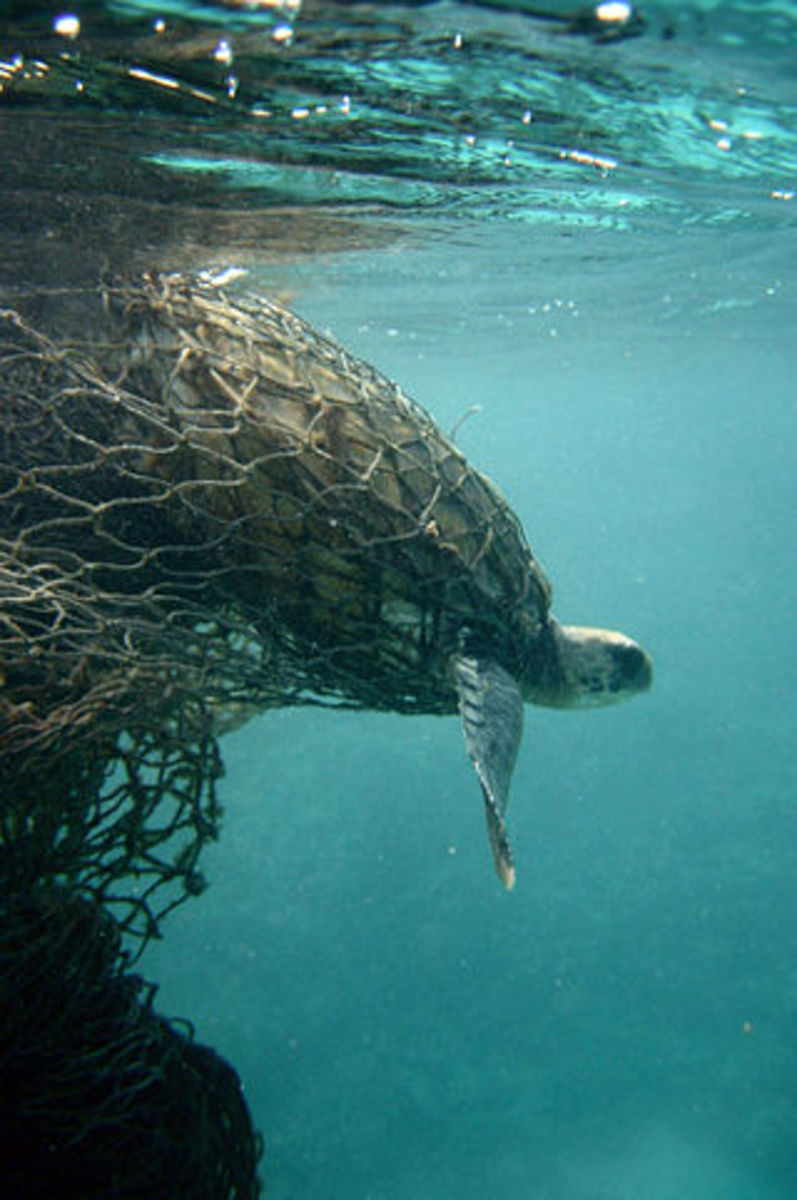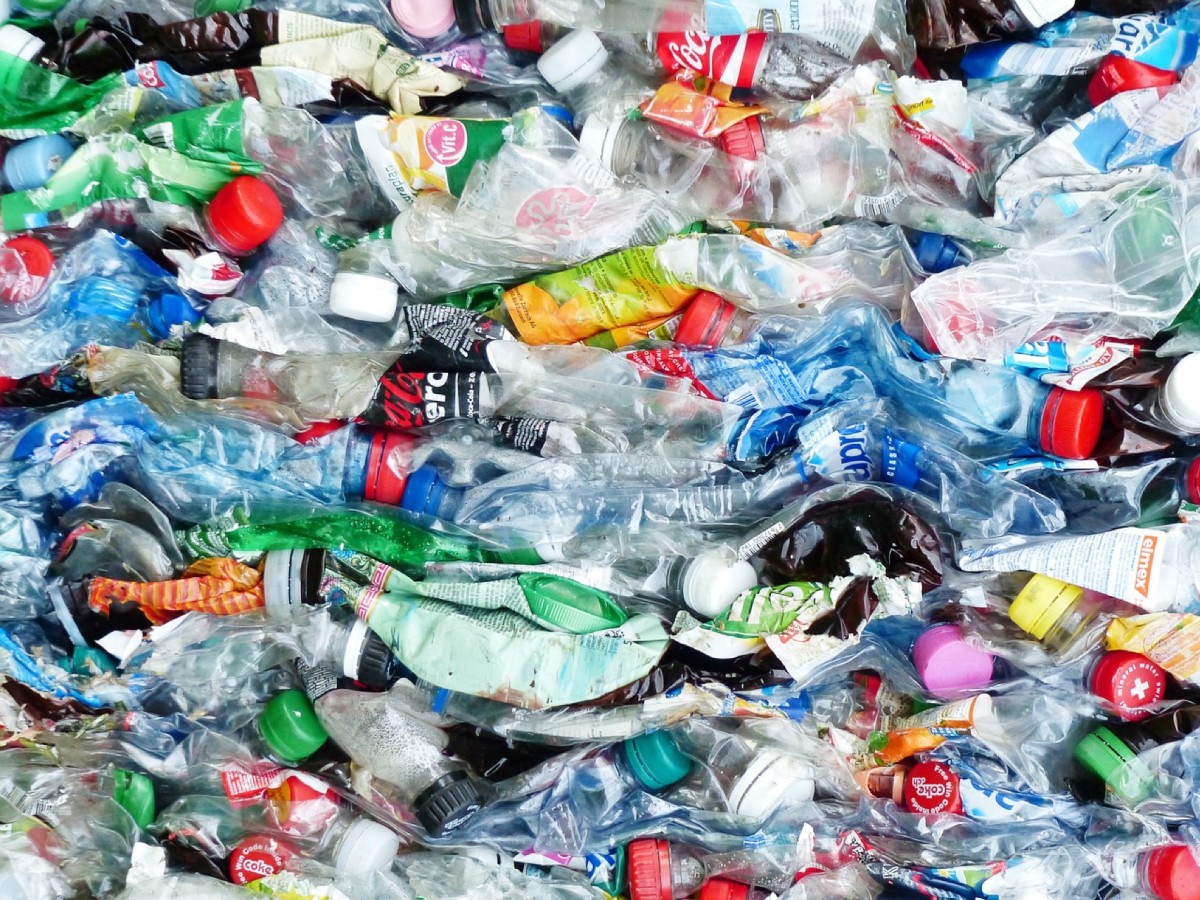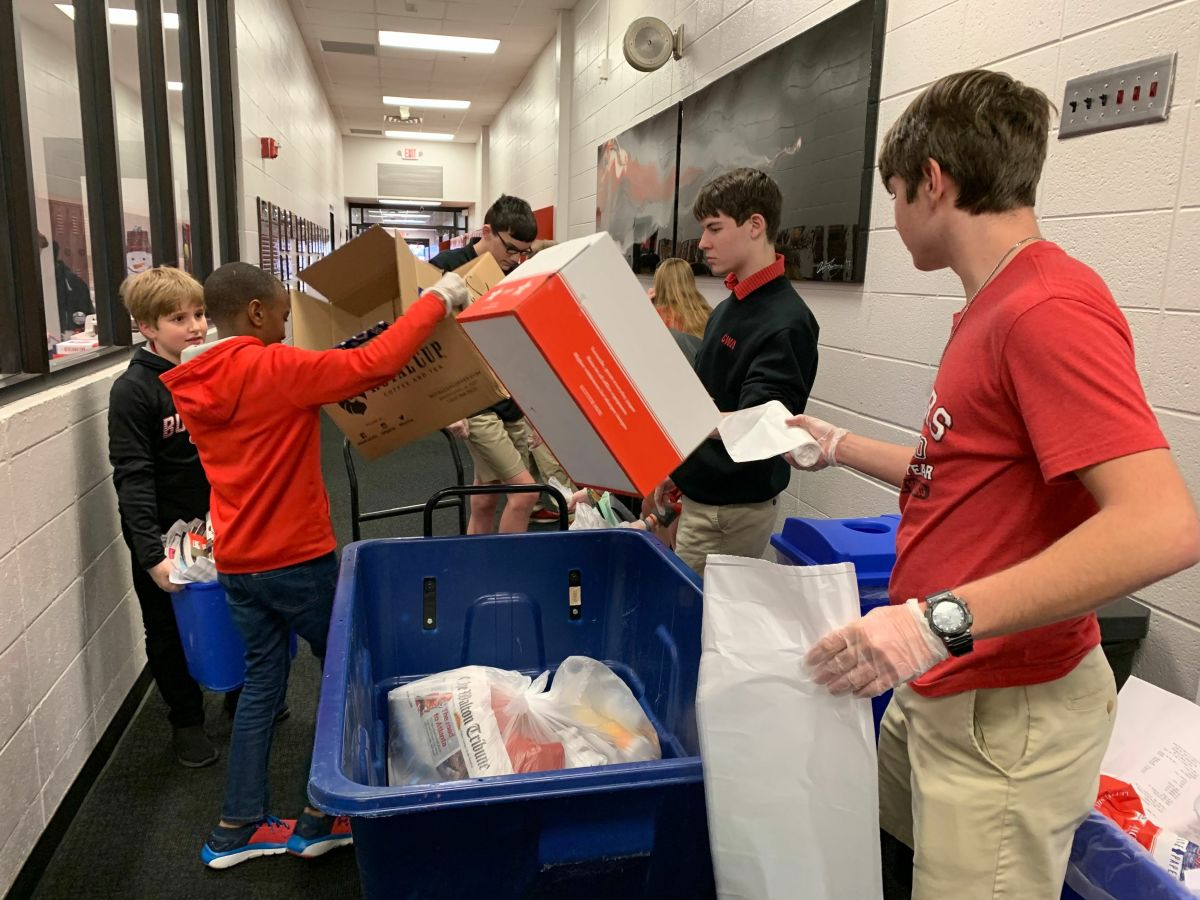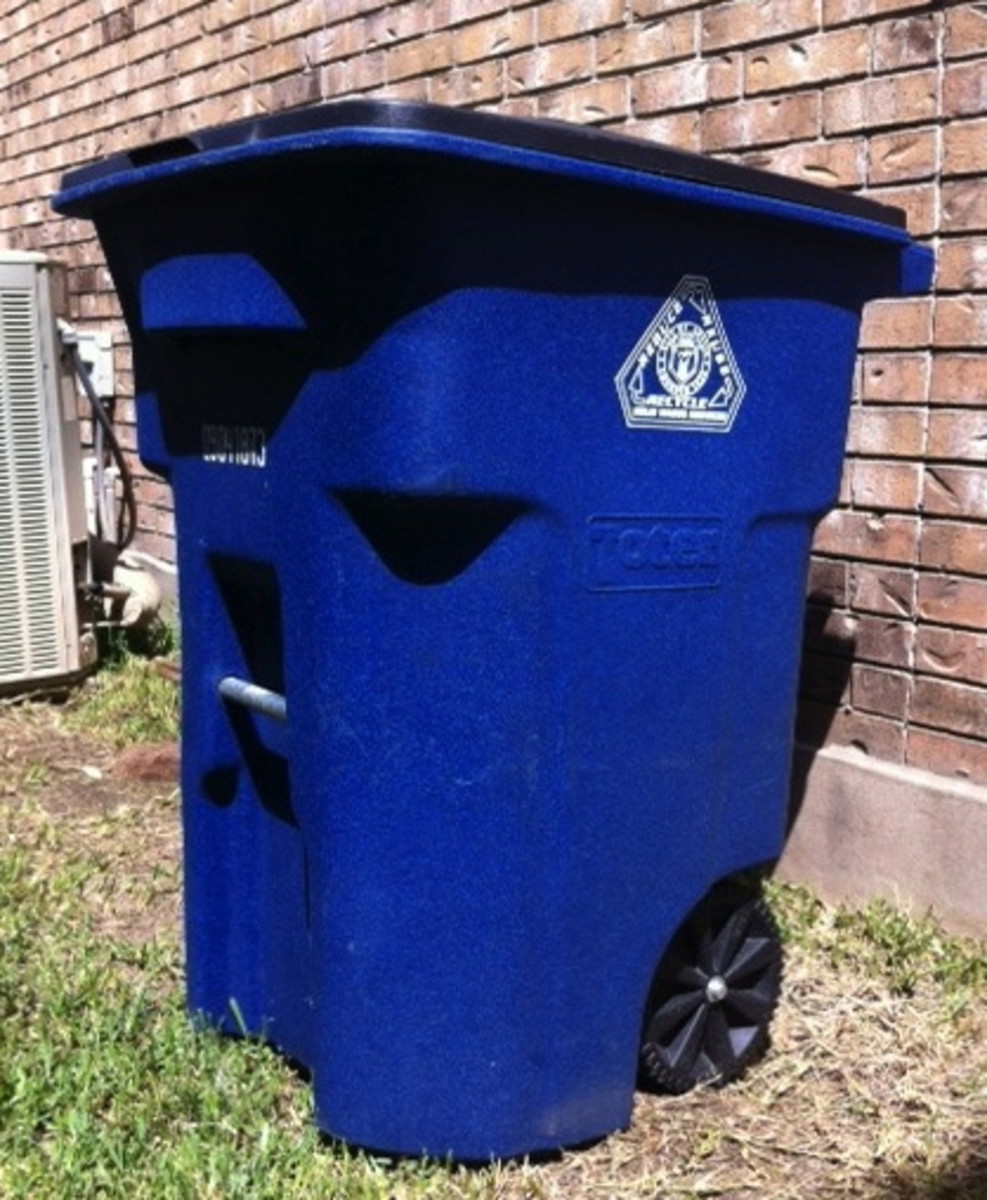Rubbish Disposal - Will Recycling Really Help?
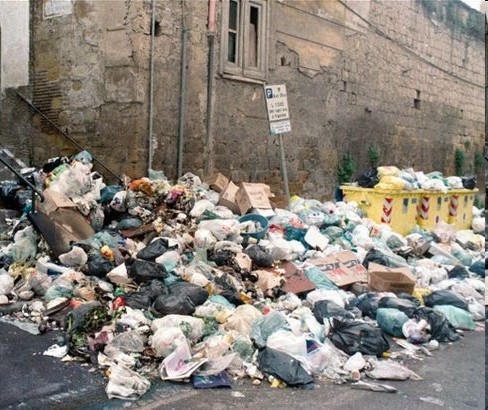
Waste at epidemic proportions?
The picture shows the rubbish piling up in Naples Italy, but it could just as well be somewhere else - anywhere else.
We as humans, regardless of race, creed, colour or geographic location, produce waste. Whether it's human waste, the waste from the animals we keep, our cars and other transportation or the products we buy and dispose of - we create waste.
Tons of it.
In fact, millions of tons, which is increasing while the space to put it is rapidly decreasing.
Initiatives have been put in place to try and recycle some of the waste we produce, but is it enough?
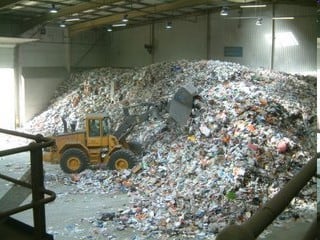
Some numbers to crunch
The estimated food waste alone in England is reputed to be somewhere in the region of 5.4 million tonnes per year - although the figure was actually higher. The actual figure of 6.7 million tonnes did not take into account the amount of wastage that was unavoidable, like orange peel and the inedible bits.
Scarier still, on average we throw away about 25% of all the food we buy.
With regards other rubbish, in 2001, UK households produced the equivalent weight of 245 jumbo jets per week in packaging waste and in America, waste production has grown from an estimated 247 million tonnes of non-hazardous waste in 1990, to 409 million tons in 2001, according to Biocycle magazine, an industry publication.
But these figures are not even close.
The fact is, these figures could only be called anything like the truth if they adequately reflected all the rubbish that was disposed of either legally or illegally; all the rubbish that was burnt in incinerators, just discarded or God knows how many other means of 'getting rid of'.
It is estimated that every year, UK households throw away the equivalent of 3 ½ million double-decker buses (almost 30 million tonnes), a queue of which would stretch from London to Sydney, Australia and back...
And the figures are rising.
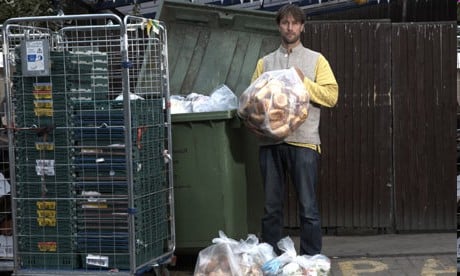
Who's responsible?
We should all be.
The fact is though, while governments are yelling at the common man; the average family, they are keeping very quiet about those closer to the source; those who could do something about wastage before we even got involved.
The retailers and before them, the producers.
The picture above shows products that have been thrown away. The article from the Guardian newspaper tells of Tristram Stuart as he makes his tour of the supermarkets and discovers a veritable Aladdin's cave of perfectly good food that the supermarkets are disposing of before it's even been able to go past its sell-by date.
So before the powers that be start on us, they really need to look at what happens to stuff and not just food, before it gets to us, the lowly consumers, because the current system is inherently flawed.
Whilst ecologically-minded people go about disposing their rubbish in a responsible manner, the producers are busily providing more and who ends up facing the problem of disposal?
We do.
The financial cost of refuse disposal is growing all the time as councils find it more difficult to find places to put it all. They charge us more, make a bigger mess of our countryside, cause more problems because of the health issues and then tell us it's our fault; that we are generating too much waste.
Who's REALLY responsible?
The manufacturers are the ones that should be under the spotlight. Remember above, the fact that British households threw away the equivalent weight of 245 jumbo jets per week of packaging material alone.
Were it not for the amount of packaging used to box, cover and otherwise 'protect' our products, we wouldn't have nearly so much to get rid of.
If the manufacturers thought a little more about what happened to their packaging after they had successfully managed to sell their products to the consumers, then perhaps we wouldn't have half the trouble we have now.

Over-packaging
The average product is packaged at least twice.
In the supermarkets, the beefburgers we buy in the nice, brightly coloured box, are within plastic shrink-wrapped packets. Meat and poultry is sold in plastic boxes that as can be seen above, is of little real use as the product is already shrink-wrapped.
Plastic blister packs designed to make it easier for the supermarkets and other outlets to display a company's goods are secondary packaging, the goods themselves are usually already in nice, bright containers and don't really need the other pack.
This packaging is often a waste and only adds to what we the consumer have to rid ourselves of, as rarely is it of any use once we've fought our way into it, almost destroyed the product in a vain attempt to remove it and then thrown it into the appropriate bin.
I know with things like electrical goods such as DVD players, computer peripherals, TV's and things, the packaging is as much for protection as anything, but do we need so much of it?
Our last electrical purchase consisted of a DVD player that was in bag within a box with several pieces of polystyrene foam for protection, but its mains lead was neatly wrapped in another piece of packaging, held together with a plastic covered wire tie and in separate plastic bags were an aerial lead, complete with another wire tie and the operating manuals, including other blurb from the manufacturers.
Did we really need the extra bags? Wasn't it all already sealed in a cardboard
box and firmly taped shut? Surely with all that, dust would have to be
pretty determined to get past it all. So a plastic bag round the unit
itself seems like overkill. Plus, it's not like the thin plastic bag would be much protection against damage. Let's be fair, it the unit were to have been in a situation resulting in damage to the box that went beyond the polystyrene protection, what use would a polythene bag be?
Okay, so now you're thinking "Hang on. That's only three bags and a couple of wire ties" aren't you?
On one unit.
Now multiply that by the hundreds or thousands or even hundreds of thousands of units sold and that's a pretty big pile of plastic that takes hundreds of years to rot down and has to go somewhere when it's thrown away.
It all adds up.
Basically, focus seems to have been put on profitability, exposure and ease of marketing, rather than the bigger picture and is almost like the manufacturers are saying "to hell with the environment, let's make some money..."

Worthless goods
These are all too apparent.
They are usually sold in Poundsaver (or the US/European equivalents). They look like they are the genuine article, yet are not worth the materials they are made of.
I made the mistake of buying a toolbox from a cut-price shop only to find that as reasonably priced as it was, none of the tools were actually capable of doing the job they were made for.
I know, you shouldn't scrimp when buying tools, but if it says something on the tin, how are you, the consumer supposed to know it's complete rubbish?
I suppose the price is a give-away.
Nevertheless, these types of products are not only a waste of money, because they are not capable of doing the job they're made for, but they are also a waste of the world's resources and take up space on an already overgrown waste pile.
A dichotomy
It seems that whilst the powers that be are busy telling us that the world is in great peril unless we do something about it, they only mean it if it is economically viable.
If they enforce certain restrictions on manufacturing, it would mean that thousands, perhaps millions would no doubt lose their jobs and that wouldn't be sound economic thinking.
On the other hand, if they just talk about it, but continue along the road they are already on, they can squeeze more money out of the market and leave the business of cleaning up to someone else.
With the amount of waste that's produced each day, never mind each year, surely that would suggest that something somewhere has to give.
Apparently not.
It's only a problem if it means that economics suffer.
When are these people going to learn that money is not worth a jot if there's nowhere to spend it?
What use is a bank balance in seven figures if the world is incapable of sustaining life?
Does recycling help?
Of course it does. Now less is going into landfill, but is it the answer?
I don't think so.
It's a good idea, but in many cases, it's not economically or worse still, not ecologically viable.
It is said the recycled paper uses less energy to be recycled back into paper than the original process with virgin wood, however this is not so with all materials.
Aluminium is one such product where energy costs are lower to recycle than the process of extraction from Bauxite.
Plastics however are not so easy to deal with.
The numbers of plastics used, whether they have been used before and other factors determine whether plastics can be recycled.
Unlike plastic polymers rarely mix in the recycling process and tend to set in layers, making them unreliable for reuse.
That would be a no then?
In my opinion, recycling is not the answer to our rubbish dilemma; it merely answers part of the question.
While certain products such as metals and paper, wood and other plant matter, can be recycled, plastics are a whole different kettle of fish.
I believe the only way we can cut down on the amount of waste we produce is to cut down on the amount of stuff that needs to be disposed of. Some packaging is only there to make the product more attractive. Other methods of achieving this should be considered that might highlight a shelf, rather than each individual unit of stock.
Reducing the amount of packaging would dramatically reduce the amount that people need to throw away and therefore the amount that needs to be dumped.
Another positive step, would be to reduce the use of plastics.
Sure many plastics have been made biodegradable, but there are far more out there that aren't. The foam in packaging is not. The plastic bags that products are wrapped in are generally not and this poses a problem when trying to dispose of stuff as it builds up, rather than rotting down.
Perhaps reusable packaging would be an idea for items such as Hi-Fi's, TV's, computers and associated products would be a good idea and would reduce waste considerably.
I also think that extraneous packaging should be considered an area where refuse could be reduced. It's all very well making something look nice, but little or no consideration as to where it goes after the product has been purchased seems to have been taken into account.
Reuse - not recycle and don't make things that aren't necessary.
It's not a cure, but it is a way of vastly reducing the production of stuff that goes straight into the bin.

